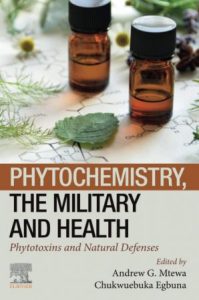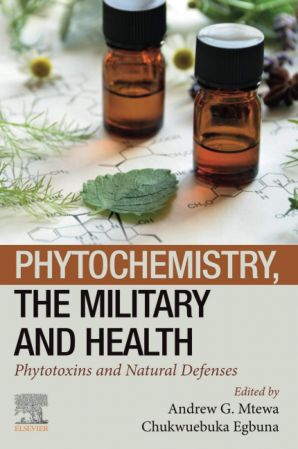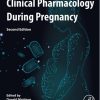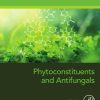Phytochemistry, the Military and Health: Phytotoxins and Natural Defenses 1st Edition – eBook PDF
$50.00 Original price was: $50.00.$35.00Current price is: $35.00.
Phytochemistry, the Military and Health: Phytotoxins and Natural Defenses – Ebook PDF
Phytochemistry, the Military and Health: Phytotoxins and Natural Defenses 1st Edition – Ebook PDF Instant Delivery – ISBN(s): 9780128232309,0128232307, 9780128215562, 0128215569

Product details:
- ISBN-10 : 0128232307
- ISBN-13 : 9780128232309
- Author: Andrew G. Mtewa, Chukwuebuka Egbuna
Phytochemistry, the Military and Health: Phytotoxins and Natural Defenses comes as a response to the gap that there has for so long existed between phytochemistry and survival of both service personnel and civilian communities during and after conflicts. Armed conflicts cause a lot of devastation to communities and should be avoided as much as it can be possible. The devastation is usually evident in service provisions such as Health, Education, Water, and Food among many others. Both service personnel and civilians are affected to various degrees. Facilities usually end up being physically destroyed, with no essential supplies and/or having dysfunctional systems. Going with untreated wounds, communicable and non-communicable diseases for weeks with no medical interventions due to the conflicts, disease burdens heavily weigh down on communities as well as security personnel. To make the situation even more complicated, masses of people are forced to migrate for safety and security reasons, likely going with diseases along wherever they go. In such instances, phytochemicals become handy in providing solutions from first aid, basic analgesia, antimicrobials, and the general improvement of health.
Table contents:
1. Introduction to phytochemicals and the military
Part A: Uses and historical perspectives of plants and their chemicals
2. Historical use of plants in warfare
3. Importance of forests to the military beyond physical training
4. Phytochemicals used in body agility and remediation from tissue mutilation
5. Important histaminic and antihistaminic plants and their potential role in military operations
6. Plants as warfare strategic tools
7. Phyto-therapy against conflict related trauma
8. Important plants in emergency military surgical procedures
9. Potential wartime phyto-sedatives for the field
10. Useful plants and phytochemicals for wound healing and physical fitness
11. Emergency phytomedicine during armed conflicts
Part B: Plants and phytochemicals used as therapeutics
12. War and conventional plant-based drug development
13. Development of phyto-antidotes against chemical agents
14. Molecular optimization of phytochemicals into weapons and antidotes
Part C: The good and adverse sides of phytocompounds
15. Important military amphibious phytotoxins
16. Classes of phytochemical weapons
17. Phytochemical based nano-particles as military foes and friends
18. Nanotechnology-targeted herbal drug delivery as fast and efficient antidotes against systemic poisons
19. Terrorism, counter-terrorism and phytochemicals
Part D: Mechanistic approach to phyto-chemical weapons
20. Chemical and pharmacological mechanisms of nerve agent poisoning
21. Mechanisms of phytochemicals as antidotes to chemical weapons
22. Application of metabolomics in emergency phytochemical poisoning and remediation
Part E: Management, protocols, regulation and future perspectives of phytochemicals
23. Laboratory protocols on handling phytochemical warfare agents
24. Detection and identification of phytochemical weapons
25. Management and regulation of potential weaponizable plants
26. All-plant emergency first aid kits innovations
27. The future of phytochemicals in the military
28. Conclusions
People also search:
phytochemistry and pharmacy for practitioners of botanical medicine
phytochemistry degree
phytochemistry masters
phytochem international
a phytochemical is a
army physiologist



